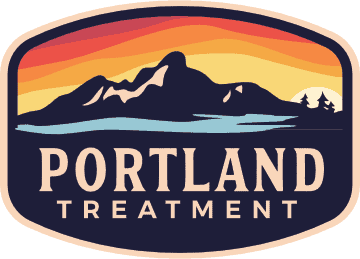Welcome to a comprehensive guide on addiction treatment with a focus on family therapy in Maine. In this article, we will delve into the concept of family therapy for addiction and its numerous benefits. We will explore how families can actively engage in the treatment process, utilizing relational reframing and implementing behavioral changes within the …
Welcome to a comprehensive guide on addiction treatment with a focus on family therapy in Maine. In this article, we will delve into the concept of family therapy for addiction and its numerous benefits. We will explore how families can actively engage in the treatment process, utilizing relational reframing and implementing behavioral changes within the family dynamic to support recovery. We will discuss various family-based substance use disorder (SUD) treatment methods, including systemic-motivational therapy (SMT) and psychoeducation. We will shed light on the importance of ongoing family support in the recovery journey and provide information on accessing additional support through SAMHSA’s National Helpline.
This article aims to equip you with valuable resources for comprehensive addiction treatment and family therapy in Maine, empowering you to support your loved ones on their path to recovery. So, let’s begin our exploration of this vital topic.
Comprehensive Addiction Treatment with Family Therapy in ME
Comprehensive addiction treatment with family therapy in ME encompasses a holistic approach that integrates evidence-based therapeutic interventions to address substance use disorder (SUD) and its impact on family dynamics, mental well-being, and community-based support.
Family therapy plays a crucial role in addressing the challenges that arise from substance use disorder within the family unit. Through a collaborative and multidisciplinary approach, the focus extends beyond the individual with SUD to involve the entire family in the recovery process. By incorporating evidence-based interventions such as cognitive-behavioral therapy, motivational interviewing, and family systems therapy, this comprehensive treatment aims to strengthen communication, resolve conflicts, and rebuild trust within the family system.
Family therapy is not only beneficial for the individuals directly affected by SUD but also for the well-being of the family as a whole. It fosters a supportive environment where family members can voice their concerns, emotions, and fears while learning coping strategies and healthy communication skills. This approach not only addresses the impact of SUD on family dynamics but also promotes resilience and healing.
Understanding Family Therapy for Addiction and Its Benefits
Understanding family therapy for addiction involves recognizing its therapeutic value in addressing substance use behaviors, enhancing familial cohesion, and promoting recovery for individuals and their family members.
Exploring the Concept and Advantages
Exploring the concept and advantages of family therapy in the context of addiction delves into its potential to address substance use issues within the family unit, fostering a supportive environment for recovery and promoting overall familial well-being.
Family therapy operates on the understanding that addiction doesn’t just affect the individual, but has a profound impact on the entire family dynamic. By involving the family in the therapeutic process, it provides a platform for open communication and rebuilding trust among family members. This approach not only helps address the root causes of addiction but also fosters a sense of unity and support, crucial for long-term recovery.
Engagement of Families in Addiction Treatment
The engagement of families in addiction treatment plays a pivotal role in fostering a collaborative approach to addressing substance use disorder (SUD), nurturing a supportive network, and promoting collective well-being within the family unit.
Utilizing Relational Reframing in Family Therapy
Utilizing relational reframing in family therapy involves restructuring perceptions, communication patterns, and relational dynamics within the family unit to cultivate a supportive environment conducive to addressing substance use and promoting psychological well-being.
Implementing Behavioral Changes within the Family Dynamic
Implementing behavioral changes within the family dynamic is instrumental in fostering a supportive and adaptive environment that facilitates the recovery process and addresses the impact of substance use on familial relationships and well-being.
Restructuring the Family Unit for Recovery
Restructuring the family unit for recovery involves redefining roles, communication patterns, and support mechanisms to create an environment that nurtures resilience, fosters recovery, and promotes familial well-being amid the challenges of substance use disorder (SUD).
Overview of Family-Based Substance Use Disorder (SUD) Treatment Methods
An overview of family-based substance use disorder (SUD) treatment methods encompasses diverse therapeutic approaches and counseling models, such as cognitive-behavioral therapy, multidimensional family therapy (MDFT), and systemic-motivational therapy, aimed at addressing SUD within the familial context.
Exploring Different Approaches
Exploring different approaches to family-based SUD treatment encompasses a varied landscape of therapeutic interventions and counseling strategies aimed at addressing substance use within the familial context and promoting holistic recovery.
Family-based interventions often incorporate evidence-based therapies such as Multisystemic Therapy (MST), Functional Family Therapy (FFT), and Brief Strategic Family Therapy (BSFT). These approaches recognize that the family unit plays a crucial role in an individual’s recovery journey, and as such, they seek to address family dynamics, communication patterns, and relationship health. The National Library of Medicine further emphasizes the significance of an integrative approach, where biopsychosocial aspects are taken into account for an all-encompassing treatment strategy, thereby aligning with the increasing recognition of the importance of family support and involvement in SUD treatment.
Key Methods such as Systemic-Motivational Therapy (SMT) and Psychoeducation
Key methods such as systemic-motivational therapy (SMT) and psychoeducation play pivotal roles in family-based SUD treatment, offering structured frameworks and educational interventions to address substance use within the familial context and promote informed recovery strategies.
Systemic-motivational therapy (SMT) involves engaging the entire family system in treatment and recognizing the impact of substance use on family dynamics and relationships. It focuses on enhancing motivation for change and collaborative problem-solving within the family unit, aiming to strengthen support networks and improve communication.
On the other hand, psychoeducation provides essential knowledge about substance use disorders, including their causes, effects, and treatment options. By enabling family members with this information, it equips them to better understand and support their loved one’s recovery journey.
Supporting Ongoing Recovery Through Family Approaches
Supporting ongoing recovery through family approaches involves cultivating a resilient support network, leveraging the SAMHSA National Helpline for guidance and resources, and fostering an environment that promotes sustained well-being and recovery for individuals and their families.
Engaging Families in the Treatment Process
Engaging families in the treatment process is essential for fostering collaborative recovery efforts, promoting open communication, and leveraging external resources such as the SAMHSA National Helpline to address challenges and support sustained well-being.
Family involvement in the treatment of mental health and substance use disorders plays a crucial role in ensuring comprehensive and holistic care for individuals. When families are actively engaged, they can provide valuable insights into the patient’s history, support system, and triggers for relapse. This collaborative approach often leads to better treatment outcomes and long-term recovery.
Open communication within the family unit can also help in addressing any underlying issues that may have contributed to the onset of the disorder.
Utilizing Family Recovery Support Groups and Peer Services
Utilizing family recovery support groups and peer services offers valuable avenues for individuals and families to connect with like-minded individuals, access mutual support, and leverage collective experiences in the journey towards sustained recovery and well-being.
These support groups and services are designed to create a shared space where individuals and families can find solace, share their challenges, and tap into the wealth of collective knowledge and experiences. By participating in these groups, individuals not only receive support but also offer support to others, fostering a sense of community and empathy. This sense of belonging can significantly enhance the overall well-being and resilience of both individuals and families, as they navigate the complexities of addiction and recovery.
Accessing Additional Support: SAMHSA’s National Helpline
Accessing additional support through SAMHSA’s National Helpline provides a crucial gateway to treatment referral, guidance, and resources, enabling individuals and families to navigate the complexities of substance use disorder (SUD) and access tailored support services.
Understanding the National Helpline and Its Services
Understanding the SAMHSA National Helpline and its services offers individuals and families a reliable resource for treatment referral, crisis intervention, and access to evidence-based support services, promoting knowledge-based decision making and proactive engagement in the recovery process.
The SAMHSA National Helpline is a confidential, free, 24/7 information service provided by the Substance Abuse and Mental Health Services Administration (SAMHSA). It is designed to help individuals and families facing mental and/or substance use disorders. The helpline offers assistance in English and Spanish and connects callers with local treatment facilities, support groups, and community-based organizations. Trained professionals provide crisis counseling and mental health referrals to those in need.
By calling 1-800-662-HELP, individuals can access this valuable resource and receive the help and support they require.
Frequently Asked Questions about SAMHSA’s National Helpline
Addressing frequently asked questions about SAMHSA’s National Helpline offers clarity on its role, accessibility, and the array of support services available, enabling individuals and families to make informed choices and access tailored assistance for substance use disorder (SUD) and related challenges.
Individuals struggling with substance use disorder (SUD) often encounter obstacles when seeking help. SAMHSA’s National Helpline serves as a critical resource, connecting them to evidence-based treatment options and support services. This valuable helpline operates 24/7, ensuring that help is just a phone call away.
Through a compassionate and understanding approach, the helpline staff provides confidential support and resource referrals, guiding callers towards appropriate treatment and recovery pathways. With a wide range of services, including treatment information, support, and community resources, it serves as a lifeline for those navigating the complexities of SUD.
Resources for Comprehensive Addiction Treatment and Family Therapy in ME
Accessing resources for comprehensive addiction treatment and family therapy in ME provides individuals and families with a wealth of information, evidence-based guidance, and community-based support services to address substance use disorder (SUD) and promote overall familial well-being.
Stay Informed: Sign Up for SAMHSA Email Updates
Staying informed through SAMHSA email updates offers a valuable channel to access the latest research-based insights, treatment protocols, and public domain resources, enabling individuals and families with the knowledge and tools necessary for knowledge-based decision making and proactive engagement in addiction treatment and family therapy.
Footer Note
The footer note serves as a reminder of the commitment to ongoing support, evidence-based practices, and the collaborative journey of addressing substance use disorder (SUD) through family-based interventions and therapeutic engagement.
This commitment underscores the importance of incorporating family dynamics into the treatment process, recognizing the influential role of family in an individual’s recovery journey. Family therapy aims to strengthen communication, resolve conflicts, and rebuild trust within the familial unit, creating a supportive environment conducive to sustained sobriety.
The inclusion of therapeutic engagement enables individuals and families to cultivate resilience, enhance coping skills, and foster healthy behavioral patterns. By nurturing meaningful connections and promoting a sense of belonging, therapeutic interventions offer a holistic approach to SUD recovery, emphasizing the significance of interpersonal relationships and emotional well-being.
Comprehensive and Compassionate Addiction Treatment at Portland Treatment in Maine
At Portland Treatment in Maine, we are deeply committed to providing comprehensive and compassionate care for those struggling with addiction. Our approach is holistic, focusing on the individual as a whole, rather than just the symptoms of addiction. We understand that each journey to recovery is unique, and our expert team is dedicated to creating personalized treatment plans that cater to the specific needs and circumstances of each client.
Our facility offers a wide range of services designed to support individuals at every stage of their recovery journey. From initial detoxification to inpatient rehab, outpatient programs, and ongoing aftercare support, we ensure a continuum of care that fosters lasting recovery. Our treatment modalities include evidence-based therapies, innovative treatment techniques, and holistic approaches that encompass mental, physical, and emotional health.
Recognizing the importance of a supportive environment in the recovery process, Portland Treatment provides a nurturing and safe space where individuals can heal and grow. Our programs are designed to empower clients, helping them develop the skills and resilience needed to overcome addiction and rebuild their lives. Family involvement is also a key component of our approach, as we believe in healing and strengthening family relationships as part of the recovery journey.
At Portland Treatment, we pride ourselves on our team of highly qualified professionals who bring a wealth of experience and expertise to our programs. Our staff includes licensed therapists, medical professionals, and addiction specialists who are passionate about helping individuals achieve sobriety and wellness. We are constantly evolving our practices to incorporate the latest research and best practices in addiction treatment, ensuring the highest standard of care for our clients.
Choosing Portland Treatment in Maine means choosing a path to recovery that is supported by expertise, compassion, and a commitment to excellence. We are not just a treatment center; we are a community dedicated to helping individuals and their families overcome the challenges of addiction and move forward to a brighter, healthier future.






